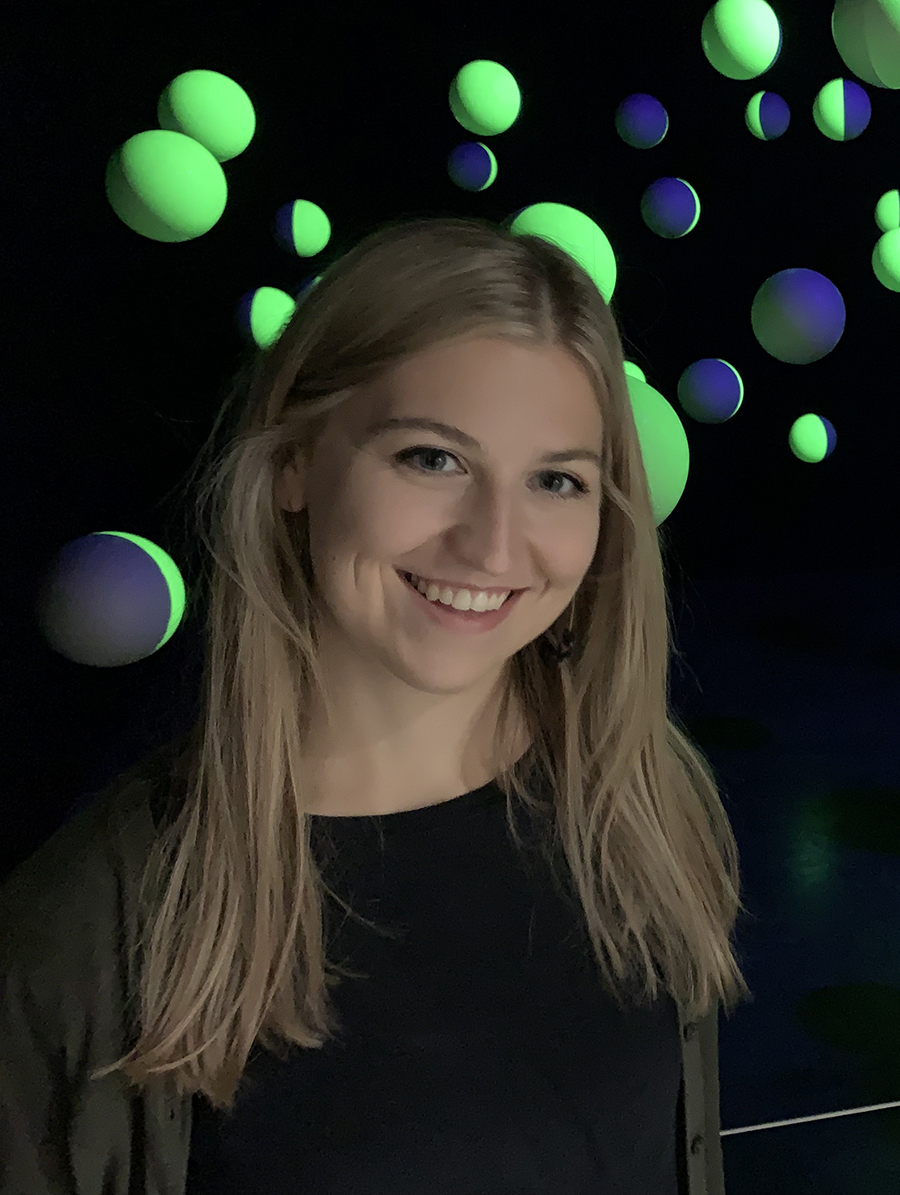Congratulations to Cindy Evans, who defended her dissertation “Political Playgrounds: The Effekt Group’s activist art in Postwar West Germany and Yugoslavia” under the direction of Dr. Tenley Bick in the fall of 2023. This fall Dr. Evans accepted a tenure-track position in the Department of Art & Design at Southern Utah University in Cedar City, Utah.
Dr. Evans’s dissertation research is the first and only sustained study on the Munich-based art collective, the Effekt group (composed of Dieter Hacker, Karl Reinhartz, Helge Sommerrock, and Walter Zehringer). From 1961 to 1968, Effekt was not only part of New Tendencies, a major international avant-garde movement based in Zagreb, Yugoslavia, but exhibited pervasively, in major locations around the world. Supported by extensive archival and field research conducted in Germany, Croatia, and the United States, including the gathering of new oral histories and unpublished or little-known photos, videos, and artworks, Evans examines Effekt’s vanguard, collectivist practice within the politicized cultural contexts of West Germany and trans-European, Yugoslav-centered New Tendencies movement. Using formal and social art historical analysis, this dissertation especially attends to Effekt’s kinetic and ephemeral artworks, namely their interactive environments and participatory objects. Alongside these innovative works made of Styrofoam spheres, bubbles, candy, and other materials, in 1965 Effekt published their manifesto, On a New Exhibition Type, proposing a new model for the display of art with a supporting anti-capitalist economic structure. Evans argues that Effekt’s turn to innovative materials, kinetic objects, and participatory art radically altered what it meant to be an active participant in an increasingly mediated and networked world.

Cindy writes about her dissertation research:
The highlight of my dissertation project was the opportunity to travel to Germany and Croatia to conduct archival research and artist interviews. I was able to uncover so much information that would have been lost or remained hidden without this type of sustained study. The relationships I formed with archivists and artists were integral to the development of my project. They not only offered me invaluable insight into the works of the Effekt group but also gave me access to previously unpublished and undocumented artworks, photos, and texts. These research opportunities not only strengthened my dissertation project but showed me how to make original contributions in the field of art history.
Her advisor Dr. Bick writes,
Cindy’s dissertation makes a major historical and methodological intervention in the discourse on art of the Sixties and broader Cold War era. She is emerging as the leading authority on this work and its connections to Yugoslav avant-gardes and “non-aligned” politics of the period. Distinguished by her bilingual command of German, work with living artists, and sophisticated understanding of under-studied international modernisms and Cold War politics, she is the first to bridge the growing scholarship on non-aligned Eastern European modernism with existing studies on art of postwar Germany, both East and West.
During her studies as a doctoral student at FSU, Cindy received the Penelope Mason Travel Grant for Dissertation Research to conduct research at the Zagreb Contemporary Art Museum in Croatia, the Academy of Fine Arts in Munich, the University of Television and Film Munich, and the ZKM Gallery in Karlsruhe. She also collected oral histories from Dieter Hacker, Helge Sommerrock (the first ever provided by the artist on this period of her work), Karl Reinhartz, Klaus Staudt, Uta Zehringer (wife of the late Walter Zehringer), Walter Gaudnek, Bernhard Kohlenbach and Max Brym. Cindy has presented her research at several conferences including the Research Forum for German Visual Culture, the Hunar Conference, and the German Studies Association Conference. She also taught through the Art History International Programs Teaching Appointment at the FSU Florence Study Center in 2021.
Evans also published the article “Frieder Nake and the Ethics of Cold War Computer Art” in the December 2023 issue of the journal Leonardo. In this essay she discusses the artist Frieder Nake, who in 1971 denounced the production of computer art, after having been a pioneer of the medium and participating in groundbreaking exhibitions across Western and Eastern Europe in the 1960s. She reexamines Nake’s position in context, from his initial understanding of generative art’s redemptive political role and his later view post-1968, following revolutions that demonstrated computers’ entanglement with the North Atlantic capitalist military-corporate research complex.
Dr. Evans joined the faculty at Southern Utah University in the fall of 2023 as Assistant Professor of Art History.